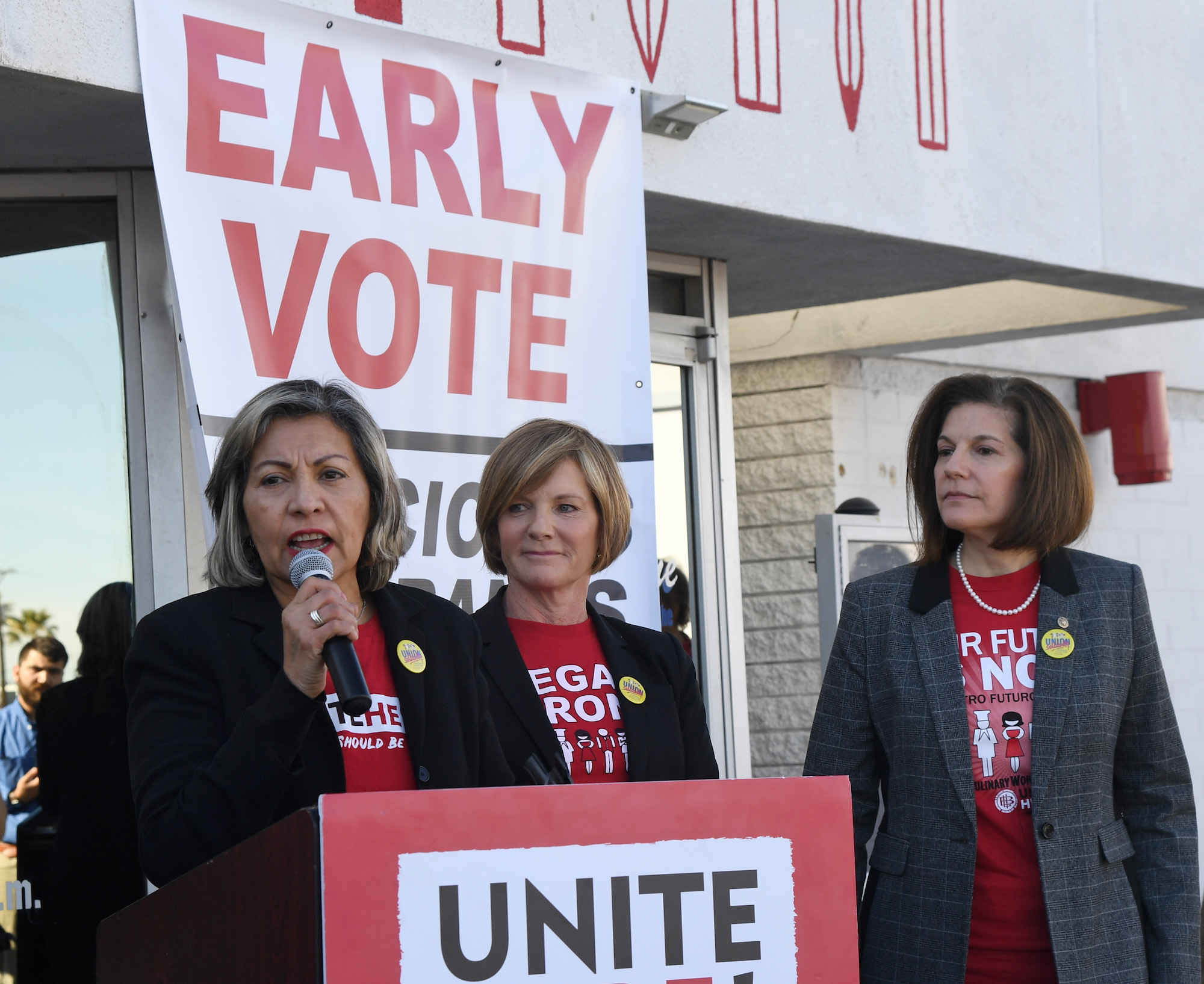
The Nevada Caucus will be the first test of Democratic candidates’ appeals to Latino voters
The winner, depending on the margin, could run away with the Latino vote across the country and it will go a long way in getting them the Democratic nomination.
In six days’ time, Nevada Democrats will try to do in one day what the Iowa Democratic Party has still yet to figure out. It will caucus for which Democratic presidential candidate to give its delegates to.
Once again, voters will gather in precincts — this time across Nevada — to show support for their chosen presidential candidate.
What happened in Iowa was a black eye to the whole primary process and led to the resignation of the Iowa Democratic Party’s chair. It has party officials in Nevada “scrambling and trying to do it right.”
But while the party scrambles to caucus correctly, the Democratic candidates left in the primary race are scrambling for a Latino vote that represents close to 20% of all voters in Nevada.
On the whole, Latinos represent almost a third of the population in the state. The most concentrated area of North Las Vegas is where most Democratic candidates have their campaign headquarters.
For many, the state is a proving ground of their appeal to the Latino voter, not just because of the numbers, but history also says that Latinos in Nevada participate and have flexed their political power for more than a decade.
They require engagement if the candidate wants to see success, which some have embraced in different capacities.
The leader as of now is Sen. Bernie Sanders, and he’s relied heavily on his concerted nationwide effort engaging Latino communities to spur his lead in the polls. He swept up the Latino votes in Iowa and New Hampshire but represented a much smaller percentage of the states’ electorates compared to Nevada’s.
In appealing to a much younger electorate overall, Sanders is the number one candidate for most Latinos nationwide, but Nevada also has a number of older, more moderate Latino voters likely to vote for former Vice President Joe Biden.
RELATED CONTENT
As NBC found from some Latino voters casting early ballots, Sanders’s healthcare plan is also a concern for members of one of the state’s largest and predominantly Latino unions.
Others don’t see him being as competitive as Biden in an election against Trump.
Biden is second in the one poll taken but is struggling to capture a winning image following two consecutive fifth-place finishes in Iowa and New Hampshire.
Candidates like senators Elizabeth Warren, Amy Klobuchar, and South Bend Mayor Pete Buttigieg lack the name recognition within the Latino community to make the inroads of Sanders but are making efforts.
Last week, Warren’s campaign completed a five-city tour of Latino-dominated cities in Texas, and on Thursday, Buttigieg, Klobuchar and billionaire hedge-fund manager Tom Steyer appeared at a town hall in North Las Vegas hosted by a branch of the League of United Latin American Citizens (LULAC) to address issues specific to the Latino community. Sanders joined the town hall via Skype.
Billionaire Michael Bloomberg will not be a possible caucus candidate in Nevada but has poured money into campaigning in four states with some of the highest percentages of Latinos like Texas, Arizona, California, and Florida.
Both Texas and California will be decided on Super Tuesday and represent two of the highest delegate counts of any state in the Democratic primaries.
The Latino vote will likely be the key to winning them, and the fight for it begins on Saturday, Feb 22 in Nevada.











LEAVE A COMMENT: